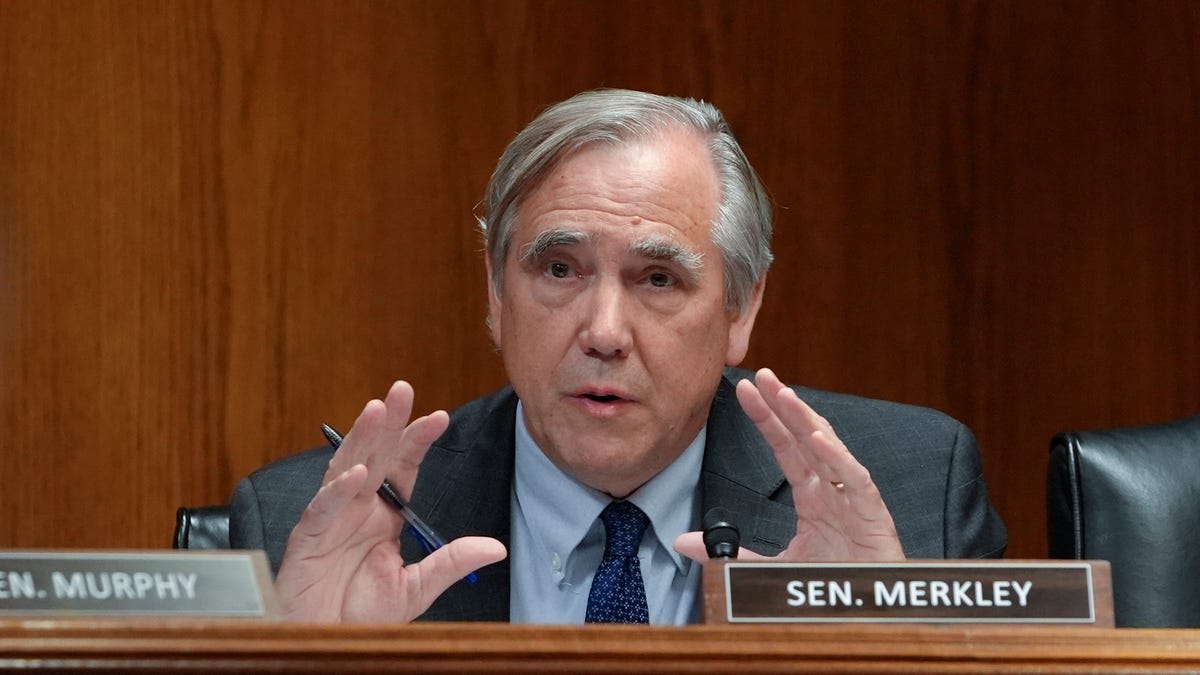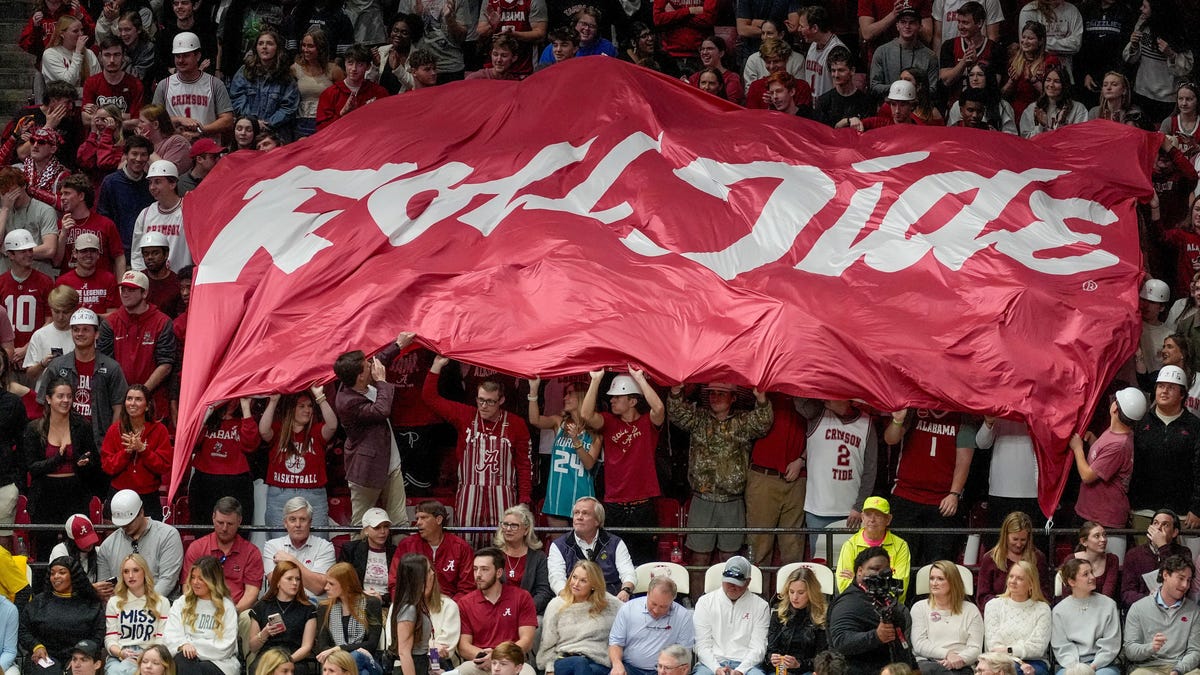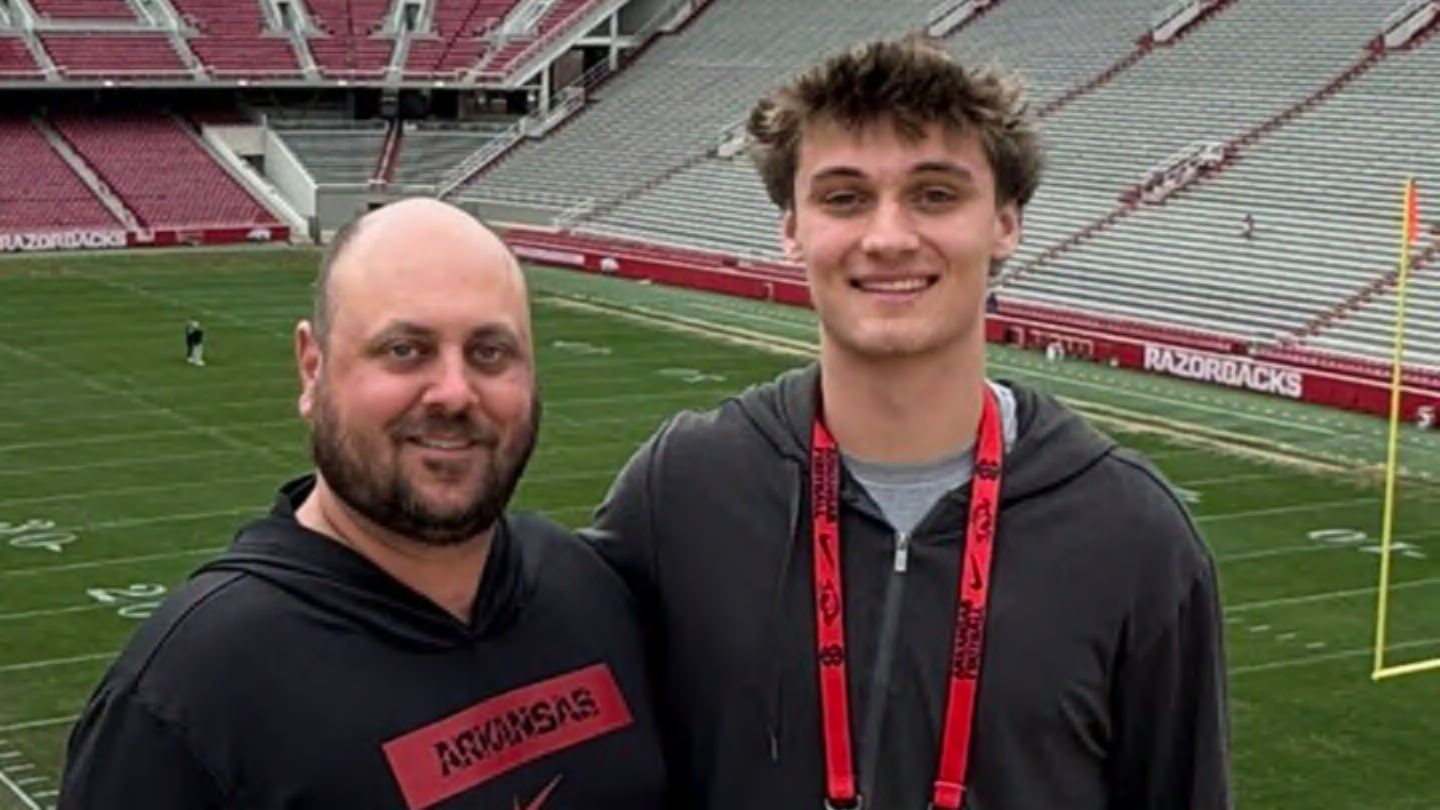New Hampshire
CBS News poll: Trump leads in Iowa and New Hampshire, where retail campaigning hasn’t closed the gap
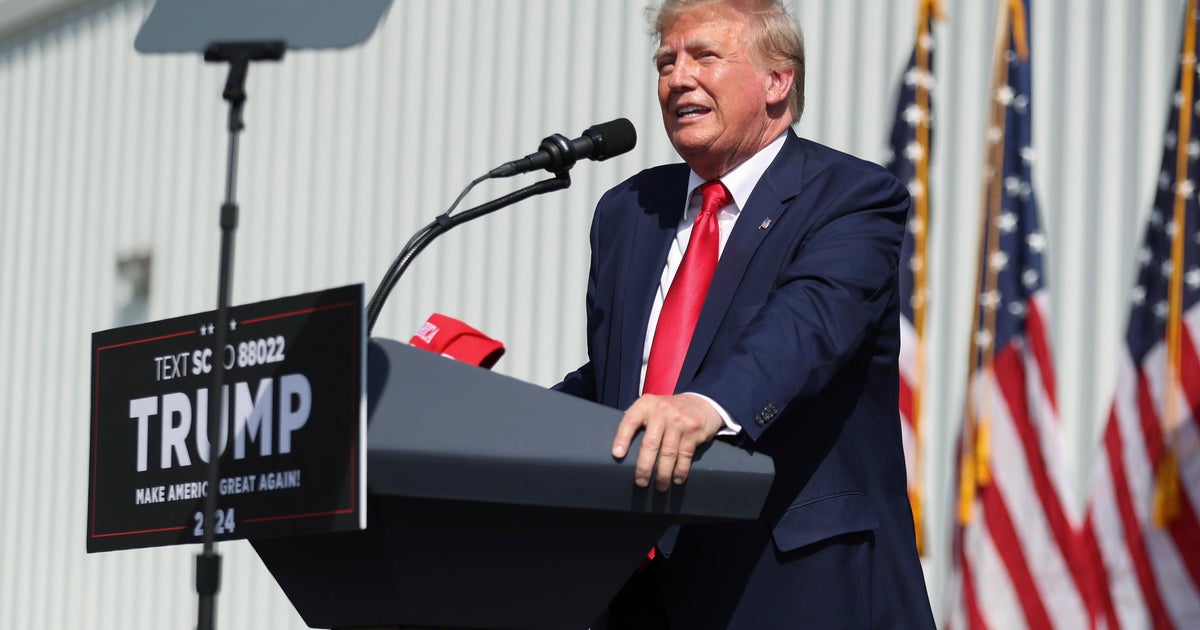
The conventional wisdom is that retail politics — the door-knocking, hand-shaking grassroots campaigning for months before the primaries — make Iowa and New Hampshire different from what we see nationally. And like a lot of conventional wisdom these days, that’s looking outdated.
Today, national frontrunner and former President Donald Trump also leads the Republican primary field comfortably in both Iowa and New Hampshire. And most of his supporters are backing him enthusiastically. His current margins would translate to him getting half of Iowa’s delegates and the lion’s share in New Hampshire.
GOP voters in both states overwhelmingly say their focus is on national, not state, issues.
Nor is there much provinciality when it comes to asking for time in-state. Trump’s lead is much the same whether people feel it’s important to see candidates stump in Iowa or New Hampshire, or not.
As in years past, these states might share a place on the calendar, but not always an ideology.
One important difference today is on abortion. In Iowa, most GOP caucus voters would not only have abortion be illegal, but would also criminally punish a woman for having one. That’s not the case in New Hampshire.
In another gauge of what’s driving the campaign, voters in both states report seeing ads on television and social media, more than any direct contact with a campaign or a volunteer.
All of the above will probably still matter on the organizational front, when people actually have to caucus or stand in line to vote this winter.
The impact of local political endorsers, like governors and congressional leaders, looks limited at best. It may be that in an era of big-spending campaigns and social media — when voters can hear the opinions of so many — top elected officials, even friends and family, don’t necessarily carry that much weight. That said, it may also be a function of a contest where the leading candidate is so well-known, and voters don’t need endorsements as much to get to know the field.
For now, however, the dominant power of being a well-known and still popular former president in Republican circles appears to have the same outsized impact on preference in these states as it does nationally.
Trump’s perceived strengths, including electability
Trump’s big lead comes because, of the qualities tested, he does very well on being seen as prepared and as a strong leader. Few describe Trump as likable. While fewer than half say he understands people like them or describe him as a “true conservative,” he nonetheless has a dominant lead among self-described conservative voters.
Perceived electability is also very important, and Trump is the only candidate whom a majority of Republican primary voters think would definitely beat President Biden.
More broadly, Republican primary voters in Iowa and New Hampshire differ somewhat on the best strategy to create a winning coalition for the general election. And it appears to matter to their vote choice.
In Iowa, a slight majority of Republican primary voters say it’s more important to motivate the base than appeal to moderates and independents. In New Hampshire, appealing to moderates and independents is more prevalent — probably because there simply are more independents involved there.
Trump leads overwhelmingly among those who think the nominee should appeal to the base. But among those who prefer a nominee with wider appeal, Trump drops below majority support — even if those voters haven’t coalesced on an alternative.
The second tier: Voters are still shopping around, but the non-Trump vote is splintered
In what seems a race for a distant second, Florida Gov. Ron DeSantis stands in Iowa about where he’s been in our national tracking. In New Hampshire, Nikki Haley and Chris Christie are doing better than they’ve done nationally, primarily because they are doing better among independent voters likely to turn out in the Republican primary than among out-and-out Republicans.
Even if these two states don’t always pick the eventual nominee, they historically have played another role in the primary campaign. They often winnow the field, and sometimes a single alternative to the frontrunner emerges. There are plenty of possibilities for that to occur this year, but as of now, support for candidates in the second tier remains very fragmented.
In both states, most voters are still considering multiple candidates. In fact, just a fifth in Iowa and about a quarter in New Hampshire are considering Trump and nobody else, making his support “floor” a bit lower in these early states than it looks nationwide. Most of Trump’s backers are considering at least one other candidate, and these voters are more likely to say they’re supporting him “with some reservations” than Trump-and-only-Trump voters are. And in both states, only-Trump voters are outnumbered by the third of the electorate who aren’t considering him at all.
Voters considering choices other than Trump say they are doing so to keep their options open. They also show concern about Trump’s controversies and legal fights, and think the party should consider someone new. Few say it’s because he could lose to Mr. Biden. And few say they don’t like Trump personally or that he doesn’t represent their state’s values (though they’re likelier to say so in New Hampshire than in Iowa).
Non-Trump voters tend to be actively considering more candidates on average — half of them are currently considering three or more, underscoring that fragmentation. DeSantis is being considered by the most non-Trump voters in Iowa, while Haley leads in consideration by that group in New Hampshire, followed closely by DeSantis.
Back to those independents in New Hampshire: Even though they are less supportive of Trump, he’s still winning them easily, due in part to Haley, Christie and DeSantis splitting the bulk of the non-Trump voters among themselves. This is the same dynamic we saw in the 2016 primary, when Trump carried independents with only around a third of their votes. Where his challengers end up this year may depend on the eventual turnout of independents — they constituted a sizable segment of the 2012 and 2016 primary electorate — as well as whether they start to coalesce around an alternative.
Abortion and the campaign
Abortion not only plays an important role in GOP primaries, but also marks a large difference between these two states.
In New Hampshire, unlike in Iowa, half of Republican primary voters think abortion should be legal in all or most cases.
Most Iowa Republican primary voters think a woman should be criminally punished for having an abortion. Most New Hampshire voters disagree.
Trump leads no matter how these voters feel about abortion.
But the second tier looks a little different in New Hampshire, where relatively more voters would have abortion be legal. Trump still leads, but by a significantly smaller margin, with Christie and Haley edging out DeSantis for second and third place.
For the four in 10 Trump voters who think abortion should be legal in New Hampshire, few are considering Christie, and about half say they at least might consider Haley — particularly the women among them.
The second debate
There is interest in the second presidential debate, with most Republican voters planning to watch, and most saying the presidential debates are a major factor for them in evaluating the candidates. Trump is not planning to attend Wednesday’s debate, but many of his supporters say debates are a major factor, perhaps because most of his voters are at least considering other candidates at this point.
The race for delegates — what ultimately matters
Candidates’ current standing in our polling would translate to Trump picking up about half the delegates in Iowa and the majority of New Hampshire’s relatively small delegate haul. Specifically, he would bring in about 20 of Iowa’s 40 delegates and 17 of New Hampshire’s 22.
These are not forecasts, but instead a translation of voters’ current preferences to delegate breakdowns. While the first two states account for just a small portion of the roughly 1,200 delegates needed to clinch the Republican nomination, the delegate tally is the score that ultimately matters. And emerging from early contests with a small number of delegates versus none at all can help candidates decide whether to stay in the race or drop out.
We produce estimates via statistical simulation, in which we use the variation in our survey data to simulate the state’s vote one thousand times, enumerating lots of possible outcomes. Each simulation incorporates the rules of the nominating contest in that state, such as delegate rounding and thresholds. (We used a similar technique to estimate delegates during the 2020 Democratic primary campaign.)
The end result is delegate range for each candidate — again, indicating where the race stands today, not where it will end up next year. Trump’s current support translates to between 18 and 23 delegates in Iowa, where delegates are allocated proportionally based on the statewide vote. DeSantis is in a distant second with 6 to 10 delegates, and the rest of the field tends to pick up at most a few delegates each.
In New Hampshire, where candidates have to win at least 10% of votes statewide to qualify for any delegates, Trump dominates. Our simulations indicate his support translates to between 14 and 20 delegates, even though only half of the state’s primary voters name him their first choice. Since there isn’t a clear second-place candidate, four candidates are hovering around that 10% threshold: DeSantis, Haley, Christie, and Vivek Ramaswamy. In some simulations, they qualify for a few delegates. In many, they fall a little short and get nothing, helping pad the front-runner’s lead.
These CBS News/YouGov surveys were conducted between September 15-24, 2023. They are based on representative samples of 1,011 registered voters in Iowa and 943 in New Hampshire. The samples were weighted according to gender, age, race, education, and geographic region based on the U.S. Census Current Population Survey, as well as past vote. Results here are reported among likely Republican caucus/primary voters, and have a margin of error of ±6.1 points in Iowa (n=458) and ±5.4 points in New Hampshire (n=502).
Iowa:
New Hampshire:

New Hampshire
The top affordable housing market in the U.S. is an hour north of Boston, new ranking shows

You don’t have to look far from Boston to find the top affordable housing market in the country, according to a new report.
A ranking from The Wall Street Journal and Realtor.com says the Manchester-Nashua metro area in New Hampshire leads the way for a second-straight quarter thanks to “sustained demand, brisk sales activity, and notable year-over-year price growth.” The area is about an hour’s drive north of Boston.
“Consistently among the nation’s hottest housing markets, Manchester-Nashua continues to balance desirability with relative value,” Reatlor.com economic research analyst Hannah Jones wrote.
The median home listing price for September was $575,000, down from $599,000 the previous quarter. While Manchester-Nashua is still an expensive metro area compared to the rest of the country, it is far cheaper than Boston where the median home price is $812,000, Realtor.com said.
Also making the Top 20 at No. 15 is the Worcester metro area with a median listing price of $553,000.
“These areas offer Boston-area home shoppers more value within a reasonable commuting distance,” Jones said.
Farther out west, the Springfield area came in at No. 9 with a median price of $370,000.
The new ranking aims to highlight metro areas with a good job market and amenities while still offering “relative affordability near major economic hubs.”
Earlier this year, Realtor.com said Beverly, Massachusetts and Leominster were two of the three “hottest ZIP codes” for home buyers in the country.
New Hampshire
Fewer options, more confusion for Medicare enrollment in New Hampshire this year

The enrollment period for Medicare began Oct. 15 and lasts until Dec. 7. But this year, there are fewer options for Medicare Advantage plans, requiring more work for many patients and healthcare providers during and after enrollment.
Major insurance carriers like Anthem and Martin’s Point have pulled out of Medicare Advantage in New Hampshire. Aetna has also pulled out of most counties in the state while some counties, like Coos, only have two options for seniors.
According to the New Hampshire Insurance Department, 77,000 seniors are affected by these Medicare Advantage changes.
At an information session this week at the Concord Public Library, Tim Harrigan, a state-licensed, private Medicare plan advisor, walked Medicare enrollees through the process of signing up for the program. Harrigan offers services to seniors for free, and is paid by most insurance carriers that serve Medicare Advantage plans.
One thing Harrigan teaches enrollees is how to navigate the many calls a person might receive once they’re eligible for Medicare, including from scammers.
“Medicare will never, ever call you ever, unless you reached out to them, and they’re getting back to you,” Harrigan told the group at Concord Public Library. “The Social Security Administration will never, ever call you unless you reached out to them, and they’re getting back to you with a response.”
Harrigan says it’s best for seniors to reach out to their local Social Security office, rather than using a 1-800 number from a third party, especially if they can’t confirm who they are speaking to.
A spokesperson for the New Hampshire Insurance department encouraged patients to call Medicare directly at 1-800-Medicare or contact ServiceLink, New Hampshire’s State Health Insurance Assistance Program (SHIP) for free counselors that can help them navigate enrollment.
During this current enrollment period, Harrigan said he’s been working everyday from 8 a.m. to 8 p.m. trying to get people enrolled. The biggest concern he’s seen so far is that seniors are losing their current plans starting next year. He worries that some might not be able to access some of the region’s top hospitals, as they have in the past.
“If you live in northern or western New Hampshire, there’s really only one option, and that’s an HMO plan where the local doctors are not in the network,” Harrigan said. “For example, Dartmouth-Hitchcock isn’t in the network with that company. So the only network facilities they’ll be able to access are in Concord,” which may be further for patients to travel.
At the information session, a number of people said they are losing their current Medicare Advantage plans, and must choose from limited options, or have had to change plans for multiple years in a row.
Jim Culhane, president and CEO of Lake Sunapee Region VNA & Hospice, said they are bracing for the impact Medicare Advantage changes will have on seniors who receive their services, and on their own operations.
“If you change insurance on January 1, and you were having services with us on December 30, and you’re having services that continue well after the first of the year, our job is to make that largely seamless,” Culhane said. “But that seamlessness takes a lot of work behind the scenes to ensure a person doesn’t have a break in care at the start of the new year.”
Culhane said that work requires “a lot of hours and a lot of people behind the scenes that are completing certain documentation, changing documentation, creating new schedules and so on.”
Culhane said navigating Medicare — whether people are choosing Part D supplemental insurance or enrolling in Medicare Advantage — can be complicated because insurance companies might offer one benefit at the cost of another.
“The devil’s in the details, and consumers rarely have the opportunity to explore what those details are, and frequently buy products that may or may not be ideal for them,” Culhane said.
After January 1, Culhane said Lake Sunapee Region VNA & Hospice may see patients who have new coverage that doesn’t cover their prior treatment plans, meaning providers may have to adapt those plans if patients can’t afford to pay out of pocket.
“Whereas one insurance may say, ‘yes, they can have eight physical therapy visits,’ another insurance will say, ‘no, we’re only going to approve four physical therapy visits,’ ” he said.
Culhane said coverage changes could reduce the availability of in-home support or other outpatient care, for example, which could reduce patient safety at home, and lead to rehospitalization.
“It’s a very expensive outcome when an individual goes back to the hospital and it’s certainly not what the patient would like,” Culhane said. “When we develop a plan of care and say an individual needs a certain number of nursing visits or physical therapy or occupational therapy visits in order to remain home, we do so under the philosophy of trying to prevent someone from needing to go back to the hospital.”
Find Aging and Disability Resource Centers in your area here.
New Hampshire
Keller: Polls suggest a Sununu return could end Brown’s hopes for Senate seat in NH
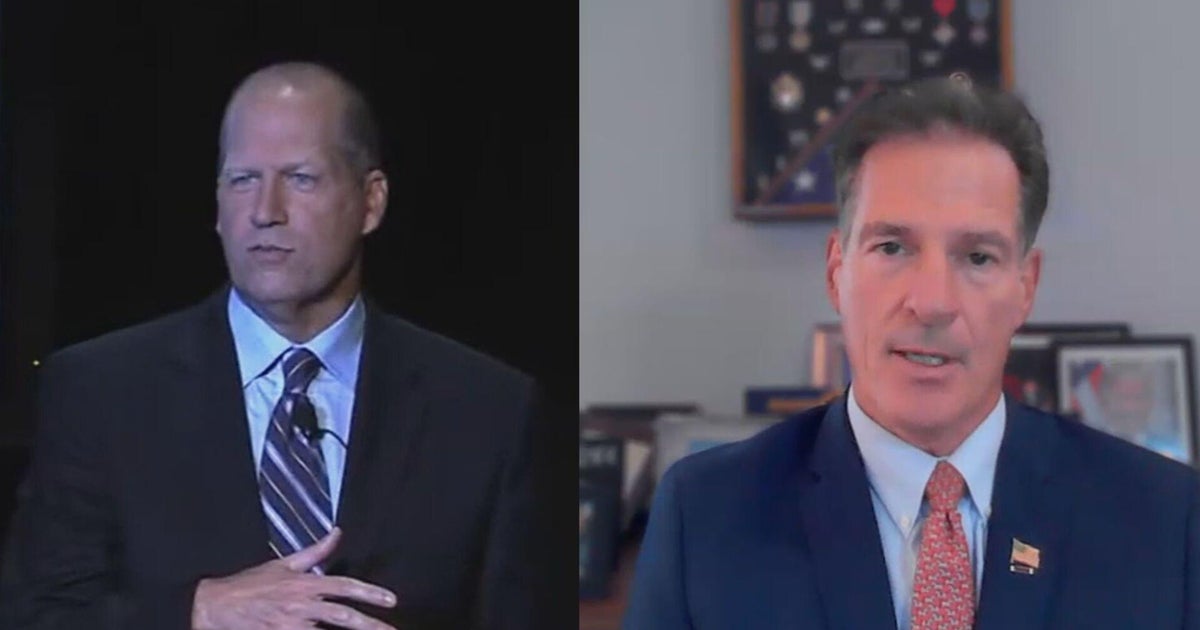
The opinions expressed below are Jon Keller’s, not those of WBZ-TV, CBS News or Paramount, a Skydance Corporation.
There are new developments in the race for the New Hampshire Senate seat being vacated by the retiring Jeanne Shaheen.
John Sununu could attract primary voters
Former Massachusetts Senator Scott Brown may not have the GOP primary to himself for much longer, with multiple reports of the imminent entry of former Senator John E. Sununu, who recent polling suggests could be Brown’s worst nightmare.
A UNH Survey Center/Granite State poll shows Sununu crushing Brown by 23 points among likely primary voters. Perhaps it’s more recognition of the famous family name than anything else, but Sununu, brother of former governor Chris Sununu, has a solid 50 percent favorable rating among Republicans, while Brown, the state party’s 2014 senatorial nominee, draws a measly 30 percent.
In a statement to the New Hampshire Journal, Brown said, “While John [Sununu] was supporting John Kasich in 2016, I was campaigning with Donald Trump. While John was fighting for special interests, I was serving in the first Trump administration…. Anyone who thinks that a ‘never Trump,’ corporate lobbyist who hasn’t won an election in a quarter century will resonate with today’s GOP primary voters is living in a different universe.”
Electability may be more important than loyalty
New Hampshire Journal managing editor Michael Graham said Brown’s past criticism of Trump’s role in the January 6, 2021, Capitol riot is a big negative for the pro-Trump party base. But Sununu, who backed Nikki Haley in the last election, has been sharply critical of Trump as well.
And expert observers say Sununu’s emergence reflects how electability may be trumping loyalty in Trump world these days. “Trump, on the one hand, may hold in his heart some grudges against Sununu,” said UNH Political Science Professor Dante Scala. “But there’s also the I think he knows: Don’t back no losers.”
Adds Graham: “The betting right now is John E. gives them the best chance to pick up a Senate seat.”
Even a few years ago, the type of criticism of Trump levied by Brown and Sununu might have been enough to get you exiled.
But with the gridlock of much of the Trump agenda, investigations – and maybe even another impeachment – sure to follow a Democratic takeover of either branch of Congress next year, Sununu’s emergence is a sign that the White House may not let pride come before a fall.
-

 World3 days ago
World3 days agoIsrael continues deadly Gaza truce breaches as US seeks to strengthen deal
-

 Technology3 days ago
Technology3 days agoAI girlfriend apps leak millions of private chats
-

 News2 days ago
News2 days agoVideo: Federal Agents Detain Man During New York City Raid
-

 News3 days ago
News3 days agoTrump news at a glance: president can send national guard to Portland, for now
-

 Business3 days ago
Business3 days agoUnionized baristas want Olympics to drop Starbucks as its ‘official coffee partner’
-

 Politics3 days ago
Politics3 days agoTrump admin on pace to shatter deportation record by end of first year: ‘Just the beginning’
-

 News2 days ago
News2 days agoBooks about race and gender to be returned to school libraries on some military bases
-
Science3 days ago
Peanut allergies in children drop following advice to feed the allergen to babies, study finds


















